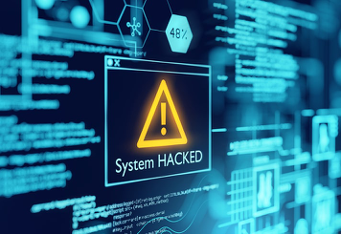United Nations cyber-crime treaty: A global network of population control
After three years of negotiations and a final two-week session in New York, the United Nations Convention Against Cybercrime was approved by consensus on August 8. The new treaty will be enforced once it has been ratified by 40 member nations.
While the treaty seeks to address cyber security which is a growing problem globally, there are urgent warnings that the agreement will permit countries to expand invasive electronic surveillance in the name of criminal investigations. According to online publication, CTECH, the latest draft has been so controversial that a coalition of 22 governmental and civil organizations globally called on governments to reject the treaty in its current form.
A major concern for several industry leaders is that the treaty will allow for extensive surveillance while offering minimal privacy protections to citizens of member states. According to the publication. “The mandated global cooperation could enable authoritarian regimes to pursue “transnational repression,” investigating crimes that may not even be crimes in the first place.”

Jamaicans were outraged when Prime Minister Andrew Holness announced last year December that hate speech legislations were necessary to address violent threats against different ethnic groups and social groupings. Hate speech laws are being used in other jurisdictions to curtail Biblical views of homosexuality and to suppress dissent to government policies using online platforms. In June this year, Holness incurred further wrath when he vowed to crack down on ‘fake news’ online. He stressed that the government had the capabilities to track unmoderated information being presented online.
“The U.N. cybercrime convention is a blank check for surveillance abuses,” says Katitza Rodriguez, the Electronic Frontier Foundation’s (EFF’s) policy director for global privacy. “It can and will be wielded as a tool for systemic rights violations.”
A major concern is that the treaty could be applied to all crimes as long as they involve information and communication technology (ICT) systems. The treaty therefore opens the door to violations of human rights and freedoms of speech.
“This expansive definition effectively means that when governments pass domestic laws that criminalize a broad range of conducts, if it’s committed through an ICT system, they can point to this treaty to justify the enforcement of repressive laws,” said Human Rights Watch (HRW).
Deborah Brown of HRW warned that the treaty could be used to target journalists, activists, and other individuals.
There are those who argue that the aim should be to address “core cybercrime”, namely those crimes that are possible only through a computer, such as hacking into computer systems, and undermining the security of networks. However the treaty goes into other areas.
The UN cybercrime treaty will enable member states to collect any “electronic data,” including biometric data and personal data collected by individuals for private use, even those collected through devices such as smartwatches and on social media. The treaty allows for cross-border surveillance and cooperation to gather evidence for serious crimes, effectively transforming it into a global surveillance network. A startling reality is that citizens may never know if their personal data has been handed over to foreign governments in the pursuit of “criminals.”
“Signatory states will be required to assist each other in fighting cybercrime, which includes obligations to provide user data collected by private companies and to compel companies to install “back doors” in their systems for continuous monitoring of user-generated data. Companies will be required to provide data even if it was collected in other countries. Additionally, the treaty allows states to instruct individuals with knowledge of “the functioning of the system in question, the information and telecommunications network, or its component parts” to provide necessary information to access data. This could involve compelling engineers to reveal confidential or encrypted information about users,” CTECH noted.
Representatives from the Cybersecurity Tech Accord—a coalition that includes Microsoft, Meta and more than 150 other global technology firms— has expressed concerns about the private sector’s ability to comply with the treaty. The coalition warned that the agreement could compel internet service providers to share data across jurisdictions, potentially in conflict with local laws. The group urged nations not to sign or implement the treaty, fearing it could harm digital environments and human rights.
The treaty has been touted as significant development in global efforts to combat cybercrime which is a multi-trillion-dollar business. The UN is confident the legally-binding international treaty will help to counter the threat.






